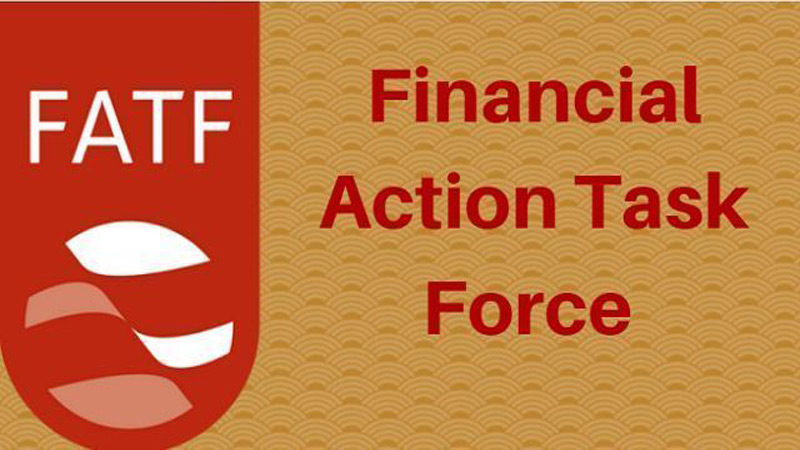 As ruling and opposition parties slug it out on petty issues revolving around personalities of Nawaz Sharif, Asif Ali Zardari and Imran Khan, the leadership seems to have lost sight of the existential challenges that the country currently faces. Compliance with the conditions of the global Financial Action Task Force (FATF) and passing the mutual evaluation (ME) of the Asia Pacific Group (APG) – a regional body of FATF – represents one of those grave challenges.
As ruling and opposition parties slug it out on petty issues revolving around personalities of Nawaz Sharif, Asif Ali Zardari and Imran Khan, the leadership seems to have lost sight of the existential challenges that the country currently faces. Compliance with the conditions of the global Financial Action Task Force (FATF) and passing the mutual evaluation (ME) of the Asia Pacific Group (APG) – a regional body of FATF – represents one of those grave challenges.
It is turning out to be the litmus test to prove that Pakistan is sincerely implementing the 27-point FATF Action Plan and acting as a normal state.
Pakistan’s challenges:
Institutional shortcomings, lack of comprehension of the issues and a thus far politically lacklustre, controversial response to issues such as money laundering, terror financing and reigning in of various proscribed groups are the general roadblocks to the implementation of the FATF Action Plan. But there are primary challenges that require a concerted, whole-of-the-government approach.
No ownership:
The foremost challenge is the absence of an umbrella mechanism. This is a sad comment on the state of affairs; Pakistan has been under the FATF watch for over a decade, was grey-listed even in 2012, but the country still has no permanent experts to deal with, monitor and respond to all FATF-related matters. “Little ownership of the process” is our primary issue, says a very senior official privy to FATF matters. Presence of no focal person at the Ministry of Finance, he says, shows the incompetence and lack of commitment to matters that are meanwhile existential in nature.
The Ministry of Foreign Affairs has appointed a person to deal with FATF matters, but that is the external interface, with no control over other ministries. The Ministry of Interior is stuffed with “officers” only with little vision or sense of urgency for issues such as the FATF.
Credibility:
The second challenge is the lack of Pakistan’s credibility among FATF-member countries in particular. The reason: disconnect between policy announcements and implementation.
Pakistan’s credibility suffered a severe jolt in February 2018, as then foreign minister Khawaja Asif violated the rules and informed the Pakistanis via Twitter that the FATF had decided not to put Pakistan in the grey list.
“One tweet killed all our efforts and got us into the grey list,” said an official closely associated with the process.
An inconsiderate Khawaja Asif had violated a basic norm; all plenary decisions are announced by the FATF president or deputy at the end of the meeting, but Asif, in his foolish exuberance, trumped that norm.
India and the US used this violation to prevail even upon friendly China, the other co-chair of APG, to punish Pakistan for this violation, and hence the FATF plenary unanimously recommended to place Pakistan in the grey list from June onwards.
India factor:
And this explains the third challenge that comes from India’s omni-present role within FATF, particularly the co-chair of the APG being an Indian representative.
The Indian influence indeed was instrumental in the rejection of a Pakistani request for removal of India from the co-chair of the Asia-Pacific Group to ensure that the FATF review process is fair, unbiased and objective.
“We have serious reservations about India being the co-chair of the ten-member Asia Pacific Group of FATF… They keep leaking critical information and thereby compromise the confidentiality of the process. They punished Pakistan for leaking an internal decision but look the other way when similar information goes out from the Indian sources,” former foreign secretary Tehmina Janjua said.
Missing understanding of FATF issues:
The fourth challenge is inculcating a cross-institutional “full understanding of terrorist financing and money-laundering risks”. Inter-institutional coordination, prompt decision-making, and strategic forecasting constitute some of the most critical elements required for full understanding of the issue at hand.
Senior officials believe that only full-fledged legal action to the logical end could thaw the ice with the majority of the 38-member FAFT plenary. The fifth serious-most challenge flows from the new geo-political contests in Asia; the rising political enmity between India and China, the US-China trade tariffs’ war, and the China-Pakistan partnership – which both India and US view through the strategic lens.
Pakistan has an uphill task ahead until late September to stand up to the aforementioned challenges and avoid being blacklisted. All members of the Indo-Into-Pacific rim led by India and the US are working overtime to push Pakistan to the blacklist.
Is there a similar effort underway here to counter that? Who is heading it and whether we will be able to win over at least three countries to oppose FATF recommendation for blacklisting Pakistan or taking it off the grey list?